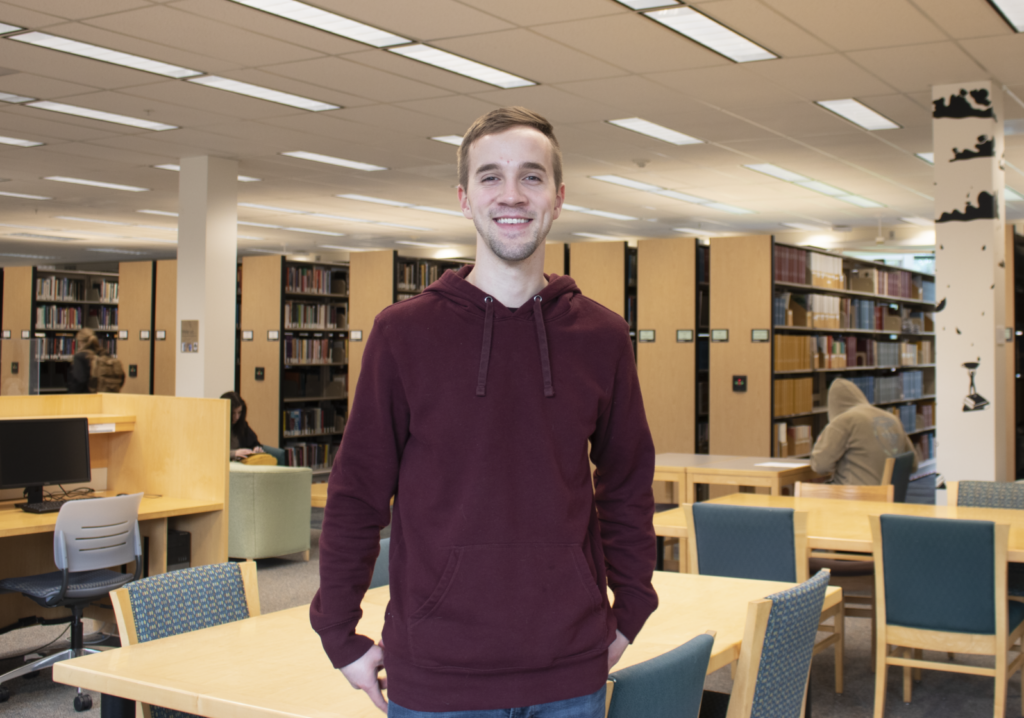Anxieties in response to the 2019 novel coronavirus escalated quickly around the world. The virus, originating in China, has been confirmed in locations across the globe, including the United States. According to the Centers for Disease Control and Prevention, there are confirmed cases in Washington state. WSU is in the early stages of monitoring the virus.
Coronavirus is a family of viruses including SARS (severe acute respiratory syndrome) and MERS (Middle East respiratory syndrome). The 2019 novel coronavirus caused a disease, officially called COVID-19 (coronavirus disease). COVID-19 causes fever, runny nose, cough and trouble breathing, according to the CDC.

Brenda Alling, director of marketing and communications at WSU Vancouver, said the university would follow protocol laid out by Clark County Public Health officials if an outbreak were to occur in the Vancouver area.
Alling is one of the primary individuals who delivers necessary information about WSU Vancouver to students, staff and faculty. In the email newsletter, “FYI, VanCougs,” Alling released a brief description of COVID-19 on Feb. 10, bringing attention on how to limit the spread of respiratory illnesses.
Alling explained in the event of reporting information about situations such as an outbreak, there is protocol to follow. Public safety on campus makes decisions based on what they think is needed, while working with marketing and communications to decide how to deliver information.
Alling said the university will be ready if COVID-19 appears on campus, comparing the level of preparedness to that of the measles outbreak in 2019.
“We were working really closely with Clark County Public Health and watching as the illness progressed through our community. We were carefully making plans in case a case showed up on our own campus, and it never did,” Alling said. “Measles isn’t as threatening as coronavirus, I was thinking about how we were prepared and it never came to campus, so I expect that we will be prepared.”
“In recent weeks, we’ve seen cases across the country and on one of our own campuses in which people of Asian descent have been mistreated. This behavior is not acceptable at Washington State University.” — WSU President Kirk Schulz
In addition to actions being taken at WSU Vancouver, WSU Pullman’s Cougar Health Services released a campus wide email, composed by Medical Director Bonnie De Vries. It discussed COVID-19, including confirmed cases, risk factors, avoiding travel to China, prevention and health services information.
“Cougar Health Services and other University offices are working with public health officials to monitor the outbreak of respiratory illness caused by a new coronavirus that was first detected in Wuhan City, Hubei Province, China,” De Vries said in the release. “The CDC considers this new virus a serious public health threat. The World Health Organization has declared the outbreak an international public health emergency. That said, the CDC considers the immediate health risk from 2019-nCov [2019 novel coronavirus] to the general American public to be low at this time. There are no confirmed cases among WSU community members.”
Although all WSU campuses are monitoring the virus, Alling explained that the occurrence and location make an impact, differing between campuses.
“The Student Wellness Center and Cougar Health Services communicate, but what’s happening at WSU Pullman versus WSU Vancouver may be very different. Clark County Public Health and all counties in the state of Washington would work together to prevent spread of the disease in the state,” Alling said.

Junior biology major, Virn Warndahl, said he would follow necessary steps needed to protect himself and other students if COVID-19 spread to the Vancouver community, which includes staying home when sick and talking to a healthcare provider about symptoms if there is coronavirus in the area. He suggested students should view details provided by the CDC regarding facts about the illness.
“If you go on their [CDC] website, they give some general recommendations like, ‘hey, simply cover your cough, wash your hands,’ the basic things. That’s what needs to be conveyed to the public, in general, be healthy,” Warndahl said. “The university seems to be pretty great about their whole public health concern.”
In addition to illness monitoring and wellness information, WSU is making students aware of xenophobia surrounding COVID-19. Kirk Schulz, president of WSU, released an email relaying the importance of maintaining inclusivity on all campuses.
“The Student Wellness Center and Cougar Health Services communicate, but what’s happening at WSU Pullman versus WSU Vancouver may be very different. Clark County Public Health and all counties in the state of Washington would work together to prevent spread of the disease in the state.” — Director of Marketing and Communications Brenda Alling
“However, the anxiety and fear from the outbreak has caused some people to treat others with disrespect and even abuse. In recent weeks, we’ve seen cases across the country and on one of our own campuses in which people of Asian descent have been mistreated. This behavior is not acceptable at Washington State University,” Schulz said in the email.
Warndahl further explained that treating people of Asian descent differently because of COVID-19 is unethical.
“I wouldn’t tolerate it … But, simply because you’re of Asian descent, and that you have ancestry from China where it originated, that doesn’t mean you are going to catch the coronavirus or have the coronavirus,” Warndahl said.
As WSU continues to monitor COVID-19 and its physical or social effects on students, Alling said communication from WSU Vancouver would increase substantially if the virus were to affect campus. She explained the use of email to disseminate information would continue, as well as electronic reader boards, flyers, a-frames and social media accounts, among others.
“I would be all about educating faculty, staff and students about the risk, about prevention. About any mitigating factors that the university might have to take,” Alling said. “We have a lot of channels where we can communicate. The complexity or severity of the situation would dictate how many of those channels we would choose to use.”
Although COVID-19 has not affected the Vancouver area directly, community members on the WSU Vancouver campus and Clark County should consider keeping an eye on all updates regarding the virus and monitoring the CDC website for further information.

Olivia is a senior studying English at WSU Vancouver.
